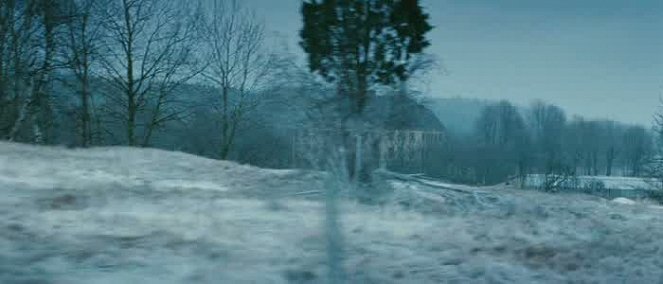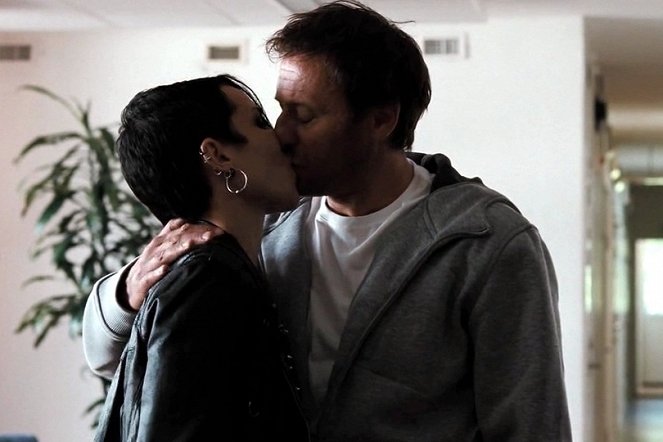Directed by:
Niels Arden OplevCinematography:
Eric KressComposer:
Jacob GrothCast:
Michael Nyqvist, Noomi Rapace, Lena Endre, Sven-Bertil Taube, Peter Haber, Peter Andersson, Marika Lagercrantz, Ingvar Hirdwall, Björn Granath, Ewa Fröling (more)VOD (1)
Plots(1)
Swedish thriller based on the bestseller by Stieg Larsson. In 1966, 16-year-old Harriet Vanger (Ewa Froling) disappeared without a trace from a family gathering on the island owned by the powerful Vanger family. Nearly 40 years later, disgraced magazine journalist Mikael Blomkvist (Michael Nyqvist) is contacted by Harriet's uncle, powerful industrialist Henrik Vanger (Sven-Bertil Taube), who asks him to write the history of the Vanger family and find out what happened to Harriet. Joining forces with troubled young computer hacker Lisbeth Salander (Noomi Rapace), Blomkvist starts to delve into the past of the Vanger family - and unearths a history more sinister and violent than he could ever have imagined. (Universal Pictures UK)
(more)Videos (2)
Reviews (9)
I didn’t read the novels and haven’t watched the other two parts of the trilogy yet, so I don’t know whether some of the apparently pointless things in this film will have any meaning in the future, but the fact is that they feel very redundant within the scope of one feature detective movie. That said, I believe in the principle that I call “pointless things happen” (not all the events that simultaneously take place in real life are important for the main event taking place, therefore, they too should be included in scripts – i.e. they don’t have to be directly causal), and as such, that relatively redundant affair with Lisbeth’s caretaker didn’t bother me at all. If the film had finished half hour earlier, I would give it five stars, but that pointless epilogue brought the rating down a point.
()
From the very beginning, every scene got darker and more depressing with each passing moment, and yet none of the final moments or catharsis moved me in any way. Maybe it's because there are so many emotional walls built around Lisbeth that I watched her from a distance the whole time, and I was much more fascinated by Mikael. Or maybe the adaptation simply skipped a few scenes that would have greatly helped me, it's hard to say. The only certain thing is that this wave of depression passed right by me, even though the investigation line had me quite attached.
()
I've read the book as well as seen the film and I'm happy with both. A perfect example of how to make a crime thriller with a grim, dark atmosphere and very little frantic action. The choice of the two leads was atypical, Lisbeth wasn't just unpleasant but unpleasant to look at, Mikael Blomkvist was a middle-aged man with fat rather than muscle, but it worked surprisingly well. This uncontrived look gave the film a much more down-to-earth and realistic vibe. It just goes to show the difference between European and American filmmaking. Instead of melodrama, you’ll get a good dose of chilling atmosphere. I can't go below five stars.
()
I can't resist comparing it to Fincher's version. The world of Millennium in Oplev's version is less flashy, but surprisingly enough, it's so inventive that many times the American version had no choice but to literally copy certain scenes along with the type casting (whether intentional or not). In this version, the intertwining of Blomkvist with the Harriet case is somewhat more logical, and the Vanger family tree is presented more clearly. Yet Blomkvist is less charismatic and his relationship with his wife seems to be non-existent. Lisbeth Salander is much more grown up and more mature overall. This form of Lisbeth is more in line with her new custodian, who is in many ways more disgusting and dangerous. Blomkvist's storyline lacks the cute relationship with the cat in the cabin on Hedestad Island, and Lisbeth doesn't give us much of her one-night lesbian romance. The Swedes are simply not as ethereal as the Americans, which is most evident in the character of Martin (Stellan is Swedish). One of the major changes is the guide to biblical references. The way in which the rapprochement between Lisbeth and Blomkvist comes about is different only in the delicate details, which is nice. However, the meeting with the Vanger family in the hospital, which is smooth in Fincher’s version, has been replaced here by dry Machiavellian babble. The Swedish film is also much less tolerant of Nazism, lacking the figure of the archivist, but the key catharsis associated with Lisbeth's past is considerably more raw and realistic. Contrastingly, the Australian chapter feels otherworldly, just as Lisbeth's loading of the property at the end fits somewhat less into the big picture. So what about the point? In the Swedish film, the last shot is of a man in love (!), while in the American one, the new-age heroine is struggling with a broken heart. Hmm....
()
It was clear to me that the movie could never fit in everything from the book, but the book still took a beating more than I would have expected. Perhaps the only change for the better was that Blomkvist looked for Harriet because he remembered her from his childhood. Otherwise, I was and still am quite at a loss. Everything seemed too rushed to me, even the oft-mentioned rape (and revenge), the script just had pieces of lot of things just to have them appear in the film and then move away from them immediately... It barely had any atmosphere, dammit! The book stands and falls with Lisbeth Salander's character, and I was initially happy to see Noomi Rapace play her. In the end, though, it didn't seem very appropriate - she simply wasn’t weird enough. In this respect I'm pretty much betting on Rooney Mara from the American remake, who looks much more unusual from the photos. I'm giving it two and a half stars, mainly because after an hour I was thinking "Well, if I fell asleep now, nothing would actually happen". And that's not a good sign.
()



Ads